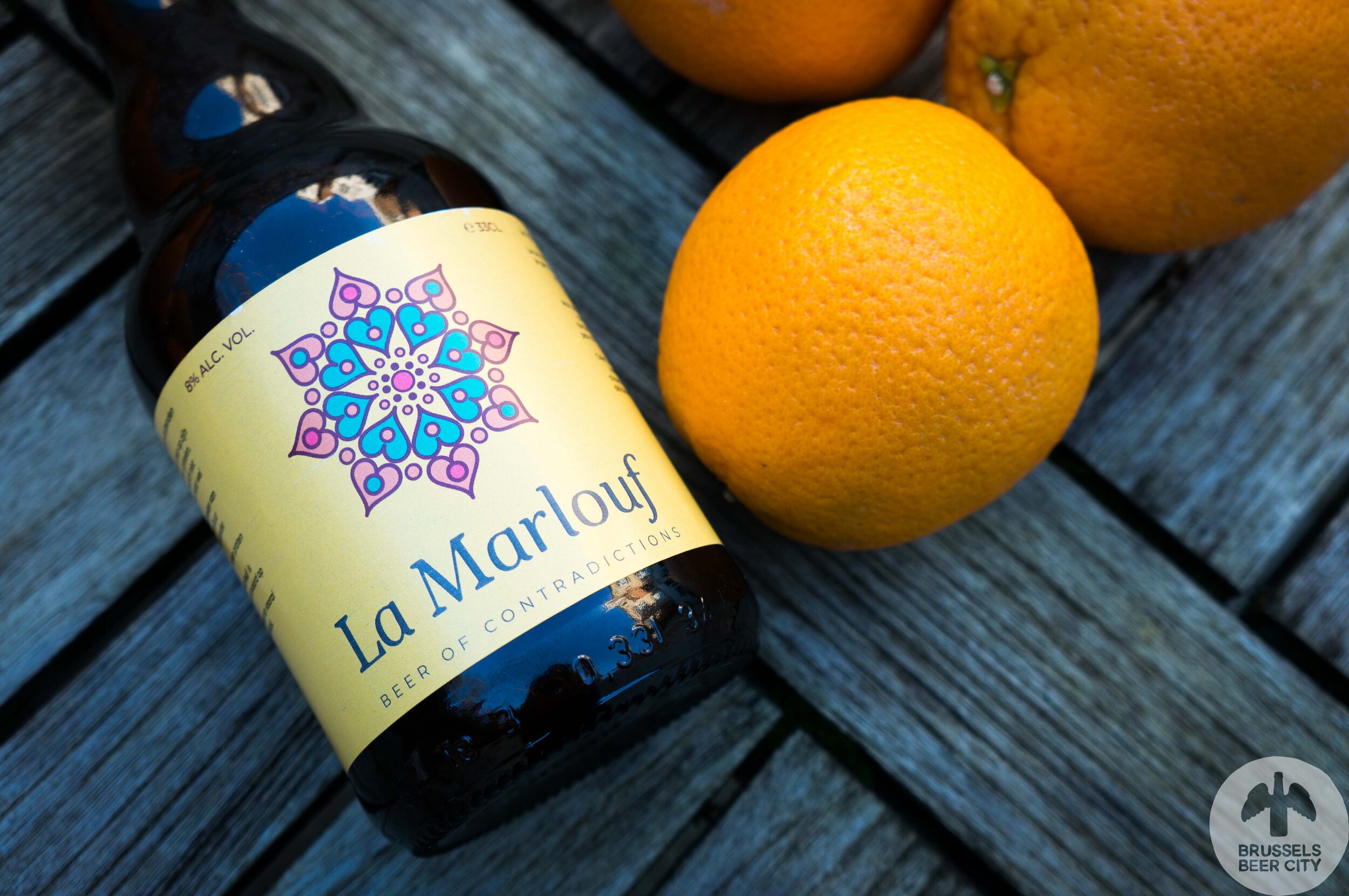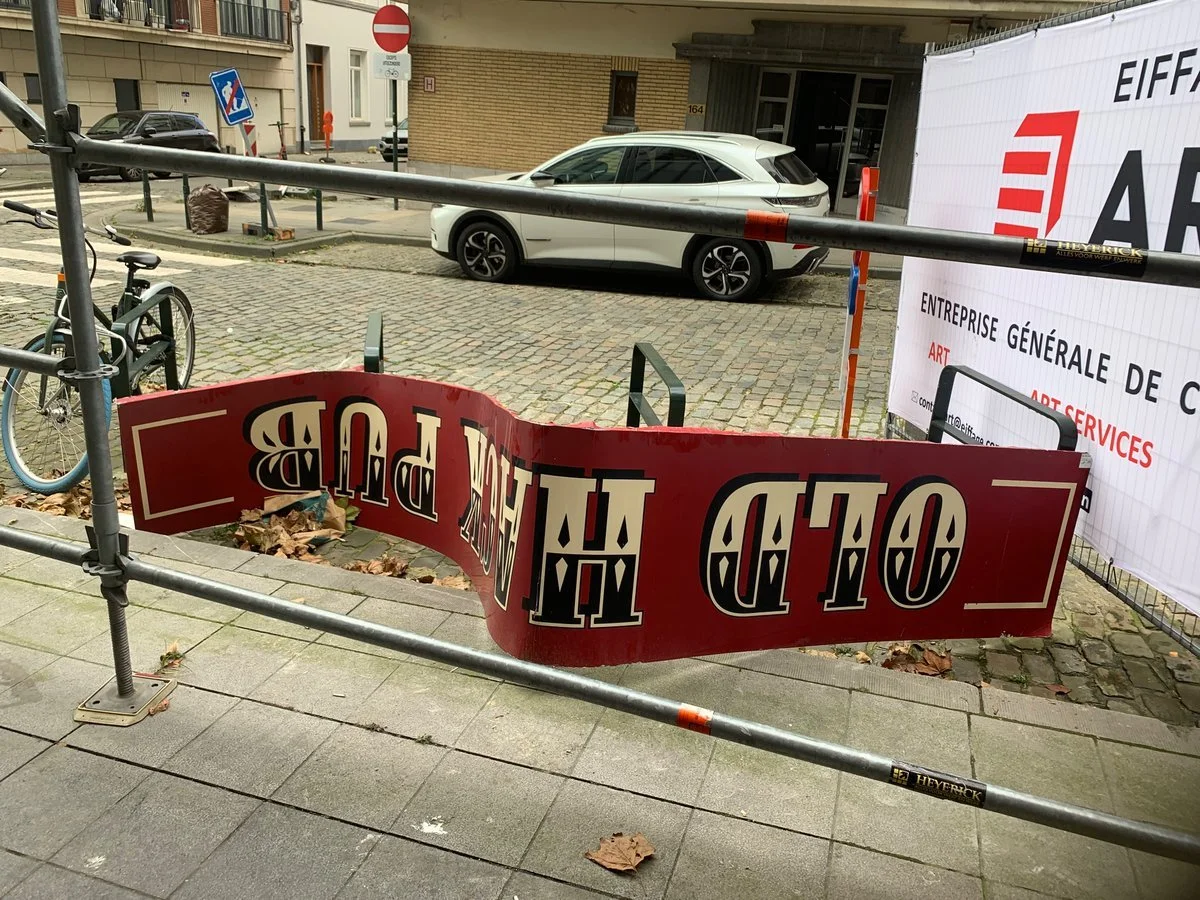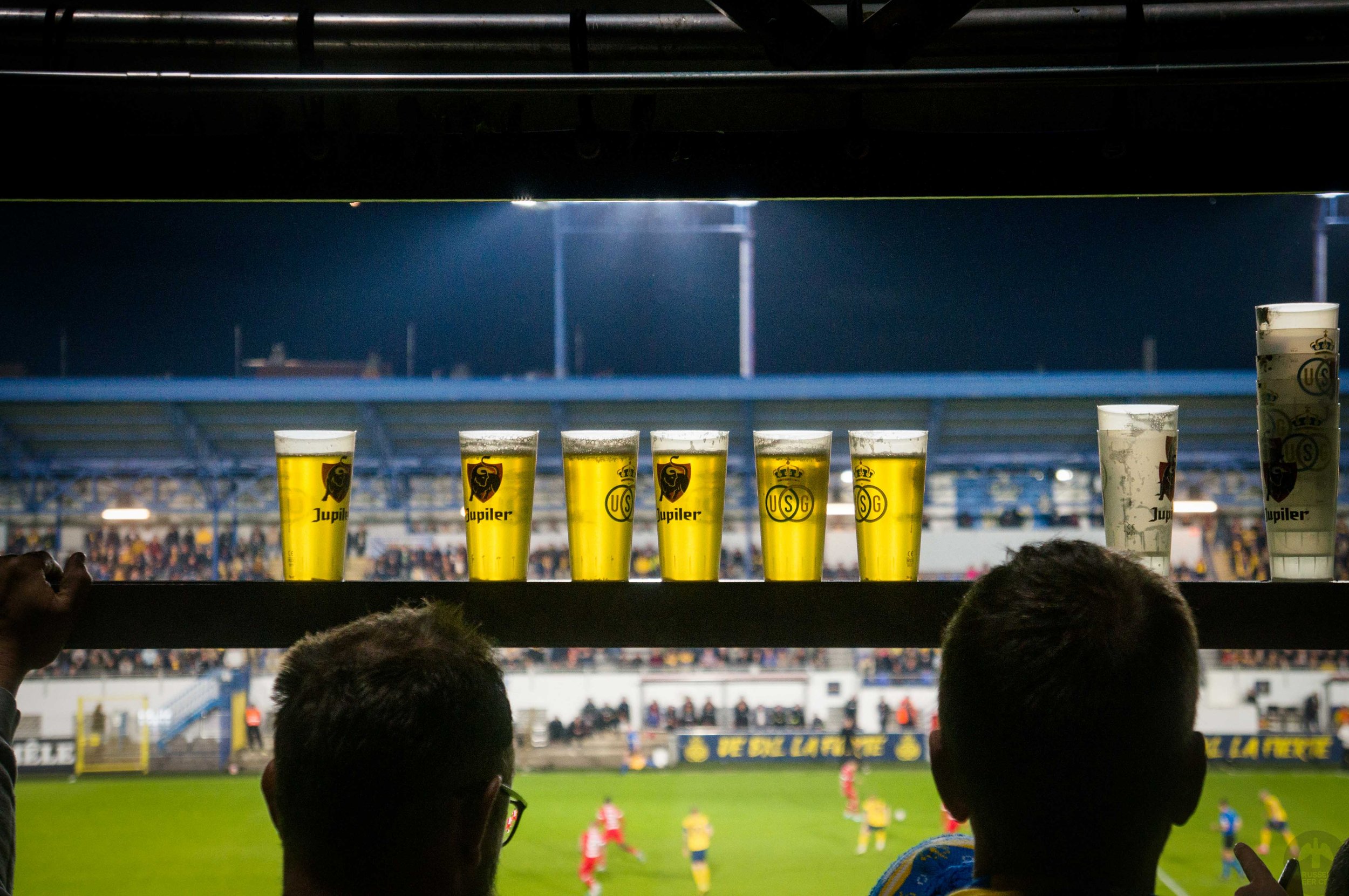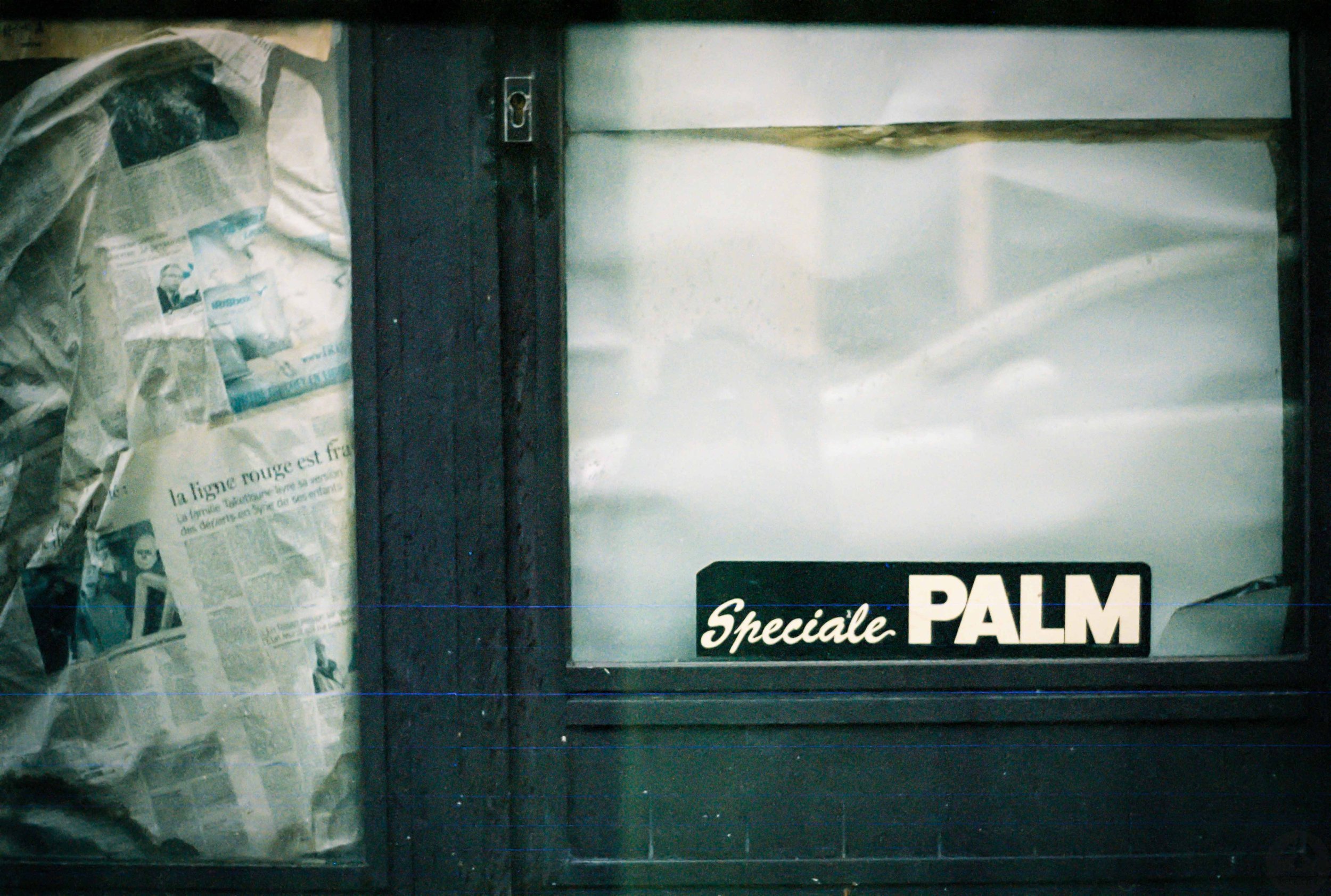100 Orange Blossoms Bloom // How La Marlouf became a Belgian First
Ask Yassine Kouysse what Morocco smells like, and he’ll tell you about blossoms that hang low from orange trees clustered around the streets and courtyards of his childhood home of Meknès, their sweet, floral bloom heralding the end of winter and the arrival of spring in the old imperial city. “To me this symbolises my…memories of Morocco," Kouysse says. Living and working in Belgium for over two decades, when the idea came to Kouysse to create La Marlouf, a Belgian Tripel beer blending the flavours of Morocco with Belgium’s brewing traditions, it was always going to be to orange blossom that he turned. Even if it took him years of abortive home brews to find out.
A beer with ideological intent
Yassine Kouysse came to beer - and to brewing - late in life. Arriving in Belgium as a 19 year-old university student in 1998, Kouysse admits he was a reluctant convert to Belgian beer. He’d left Morocco before having had much time to explore what beers were on offer but in any case the Moroccan beer scene was “not an amazing experience,” Kouysse says. It was dominated by century-old Brasserie du Maroc, with its flagship Flag Spéciale Pale Lager, and post-colonial hangovers like Kronenbourg 1664. Despite working in bars to pay his way through school, it took 12 years and a revelatory glass of glass of Duvel before his eyes were opened to the possibilities of Belgian beer culture.
It was the first time Kouysse understood beer as something beyond mass-produced lager, and his interest piqued, he began exploring what Belgian beer had to offer. This adventure eventually crystallised into an idea to make his own beer, one that would marry his Moroccan and Belgian backgrounds and one with an explicitly “ideological” intention. La Marlouf Moroccan Triple was the result, and Kouysse, now working as a project manager and living in Francophone Wallonia, says it comes with a simple message: to show that “Morocco is not only the bad idea you have,” of it.
“My idea was, when you tasted this beer, you smell and you have this explosion of the smell of flowers”
In the 20 years living as a Moroccan man in Belgium, Kouysse has experienced the way Moroccans are treated - and viewed - by the wider population change. “When I arrived it was more or less okay,’ he says. “[The attitude] was, ‘Okay, you’re a foreigner but as long as you do how we do, it’s fine. That was my perception.” But that perception changed in September 2001. “I remember when 9/11 happened. To me it was really clear: things will never be the same again for me here,” he says. “From that moment…we became something like a threat. Not everyone thinks like that, but you could really feel it [change].” Kouysse’s observations of this change were well-founded.
Zwarte Zondag
Belgium, like many Northern European countries looking for cheap labour to sustain their post-WWII economic booms, signed guest worker agreements with Mediterranean countries to supply its mining and steel industries. Morocco was the first North African country to sign an agreement with Belgium in 1964, lasting until economic crises of the 1970s dampened demand. As of the most recent census in 2012, people of Moroccan origin (at least one parent born with Moroccan nationality) make up about 4% of the Belgian population, with that number higher in Brussels and other cities. And anti-immigrant sentiment - and politics - long predates any post-9/11 concerns about security and radicalisation.
November 21 1994 is known in Flanders as Zwarte Zondag (‘Black Sunday’). On that day federal elections were held that marked the moment when the racist, anti-immigrant extreme-right Vlaams Blok broke through a cordon sanitaire Belgium’s other political parties had erected around it to win 6.6% of the vote and secure 12 seats in parliament. The party was later convicted of racism and xenophobia in 2004 and dissolved. Its successor Vlaams Belang (‘Flemish Interest’) rode an increase in anti-migrant opinion, which they themselves were responsible for stoking, to a record 12% of the vote and 18 seats in 2019’s federal elections. This won them an invitation to coalition negotiations from the conservative Flemish separatist party NV-A, which while unsuccessful were an implicit dissolution of the cordon sanitaire. And beyond politics, what political commentator Othman El Hammouchi recently described as “Flanders’ dark stain” has resulted in Unia, the Belgian agency responsible for fighting discrimination, reporting year-on-year increases in racist complaints, with a record number of complaints opened in 2019.
By 2018 Kouysse had had enough. “I was tired more and more about the clichés about Moroccans. When you don’t know a culture, you start to fear them or you give them intentions,” he says. “Even friends, when I was invited for dinner, the first question…they asked [was], ‘Do you eat pork? Oh, and you drink alcohol?’.” And lost among these clichés were people, like him, who had come to Belgium and gotten on with making a good life for themselves. “Being Moroccan in Belgium today, I will summarise it like this: people who work and do added value things, you don’t hear about them,” Kouysse says. “They are quietly doing their lives. You only have a minority that makes noise, and this minority is not really representative” of the wider community.
“I remember when 9/11 happened. To me it was really clear: things will never be the same again for me here. From that moment…we became something like a threat. Not everyone thinks like that, but you could really feel it [change].”
“We also like the good life”
Instead of, as he puts it, “playing the victim by saying, ‘You know, not all arabs are terrorists” or seeking to explain to people Morocco’s rich traditions of poetry, cinema, or wine-making, Kouysse reached for a more succinct medium for his message. “Beer. Food. Something that gathers people [together],” he says. “We also like the good life…[and] all Moroccans are not the guys you think they are.”
Not having any brewing knowledge, Kouysse set up in his garage and got to work teaching himself the basics. He says his first attempts at melding Belgian and Moroccan characteristics were “not really convincing.” In his desire to experiment with different spices and flavour combinations, Kouysse was a little heavy-handed and his early beers were “very strong, very heavy in terms of taste because I wanted the Moroccan tastes to come through,” he says.
He fine-tuned his recipe, and after two years in the garage settled on a Tripel infused with orange blossom. Not the bottle green vials of pungent, floral orange blossom water ubiquitous in Brussels supermarkets and typically used in Moroccan patisserie, but the more restrained flavours of dried blossoms. “The flavour [of the water] is too strong and again too clichéd,” Kouysse says. “I really wanted to use the essence of the orange blossom. My idea was, when you tasted this beer, you smell and you have this explosion of the smell of flowers and…I didn’t want it to be too strong. I just wanted it to be suggestive.” And the resulting beer is light, bright and citrusy in its aroma, with some woodiness and green bitterness lurking on the back of the palate and classic Belgian spiciness emerging the more it warms up in the glass.
Once he had Marlouf’s recipe dialled in, Kouysse contacted breweries about contract brewing a small batch. Most breweries he talked to required a minimum order that was too big or too expensive, Marlouf being neither a money-making endeavour nor - Kouysse freely admits, a cash-rich one. The broader Brussels beer scene (), has a complex, and more often dismissive, attitude to contract brewing. But it’s easy to condescend when you’re a privileged member of the in-group - where you know the rules of engagement, the ‘right’ people, and you share a similar cultural background with others in what remains in Belgium an overwhelmingly white industry, a couple of notable exceptions aside.
“I’m Moroccan. I live in Wallonia. The beer is mainly sold in Brussels. And it’s brewed in Flanders. This is a project meant to bring people together.””
It’s worth considering the implicit and explicit barriers to entry that may make contract brewing the logical choice for someone with no ‘in’ to this group. Kouysse found BeerSelect, a recently opened contract brewery outside Ghent that was happy to brew a 2,000-bottle batch of Marlouf to his recipe specifications. As expected, Kouysse’s mission statement is front and centre on the end result, alongside a tagline calling it a “beer of contradictions”. He wants drinkers to read the label and, when confronted with new and unexpected flavours, engage in a conversation about the conscious and unconscious biases they may have about Morocco and Belgians of Moroccan descent. And if the beer doesn’t prompt debate, its name already has.
Reclaiming Marlouf
Marlouf is a pejorative term in Francophone Belgium for Belgians of Moroccan descent, and there are people who were unhappy with Kouysse’s use of it on a beer because of the word’s baggage. Kouysse’s attitude was different; he wanted to reclaim it, or at least to defang it. “This word will remain because you always have stupid people using it,” he argues. “Instead of hiding, I wanted to shock [people] a bit and use this word to get the attention of [everyone]: those who use the word and those who are called Marlouf.” And gripes about the name aside, Kouysse says reaction has been positive and orders have come in from one of Morocco’s major beer importers for a crate.
Whether or not Kouysse will be successful in his mission to confront and overturn prejudices about Belgium’s moroccan community is an as-yet unanswered question. The idea that “food brings us together”, eating as a universal activity that transcends cultural barriers, has taken a knock in recent years. As writer Bettina Makalintal wrote in a piece for Vice in June 2020 on white America’s colonisation of immigrant food culture, “our personal affinities for certain foods are not meaningful indicators that we revere or respect the people and cultures that created them.”
Beer is just beer, Marlouf has some heavy lifting to do to cut through decades of ingrained societal attitudes, and Belgian racists will probably still remain racist even while enjoying the fruits of Kouysse’s labour. That kind of cynicism is entirely absent from Kouysse’s thinking. And he’s operating in a different cultural context. Instead of appropriating the food and traditions of a minority, he himself is a minority attempting to rally disparate communities around the banner of Belgian beer - a totem of common identity in a Belgium with few shared national institutions. “I’m Moroccan. I live in Wallonia. The beer is mainly sold in Brussels. And it’s brewed in Flanders,” Kouysse says. “This is a project meant to bring people together.”
In choosing beer, he’s doing just what people who have come from elsewhere and settled - by force, circumstance, or necessity - in Belgium’s marshy flatlands have been doing for centuries: adding their own cultural tincture to enrich Belgium’s culinary tradition. The Spanish did it. The French too. And the Italians. With beer, the influence of the English is everywhere. And now Kouysse’s doing it for the Moroccan community with Marlouf.
He’s staking out a place in the Belgian beer firmament for the fragrant orange trees of his Moroccan youth, hoping that along the way hearts and minds will follow where stomachs lead. “I love my country and I just want this picture of Morocco and Moroccans to be perceived differently,” Kouysse says. “And if it’s through a good beer, I’m happy with that.”




















